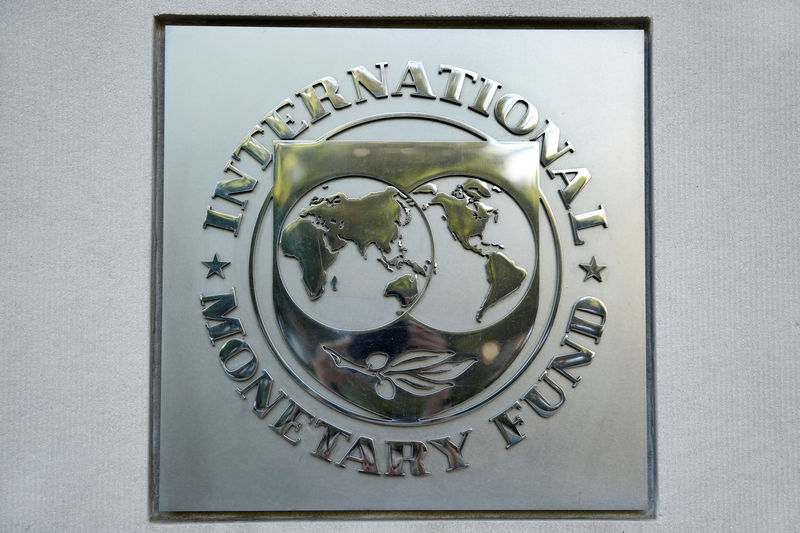 © Reuters. FILE PHOTO: International Monetary Fund logo is seen in Washington
© Reuters. FILE PHOTO: International Monetary Fund logo is seen in Washington(Reuters) – The International Monetary Fund will incorporate Islamic finance into its financial sector assessments of select countries starting next year, aiming to improve regulation in the growing sector.
The IMF has traditionally focused on conventional banking, but it has been increasingly engaging with regulators in countries where Islamic finance is now deemed to be systemically important.
Under a proposal by the IMF’s executive board, guidance issued by the Malaysia-based Islamic Financial Services Board (IFSB) would be incorporated into IMF assessments to address the regulation and supervision of Islamic banks.
Islamic finance, which bans interest payments and pure monetary speculation, is estimated to have over $2 trillion of assets globally and is offered in over 60 countries, according to the IMF.
Business practices, however, can vary across markets spanning the Middle East, Africa and Southeast Asia.
The IMF wants to encourage more consistency in applying Islamic finance rules, having previously warned over the complexity of some sharia-compliant products that could stifle growth and add to financial instability.
The industry is important for financial systems in more than a dozen countries, accounting for over 15 percent of total financial assets in countries such as Saudi Arabia, Kuwait, Qatar and Malaysia.
The IMF said it views the growth of Islamic finance as an opportunity to strengthen financial inclusion efforts, deepen financial markets and develop new funding sources.
Fusion Media or anyone involved with Fusion Media will not accept any liability for loss or damage as a result of reliance on the information including data, quotes, charts and buy/sell signals contained within this website. Please be fully informed regarding the risks and costs associated with trading the financial markets, it is one of the riskiest investment forms possible.
Source: Investing.com





























